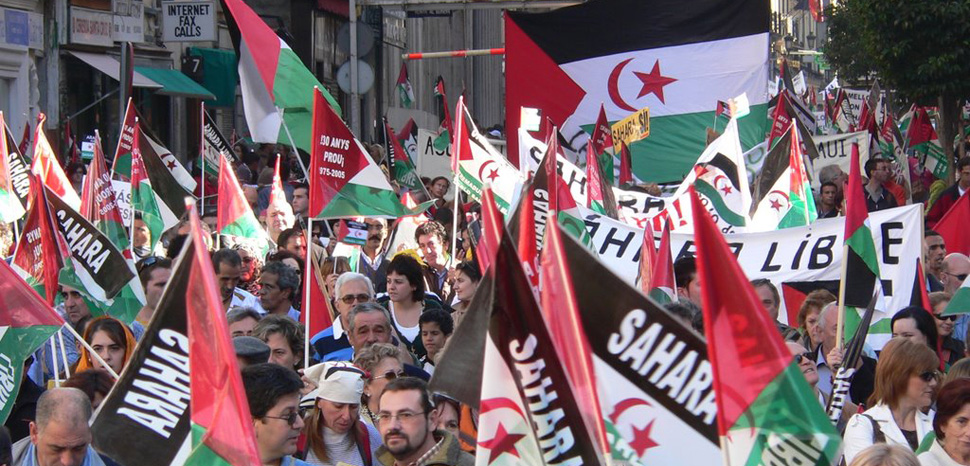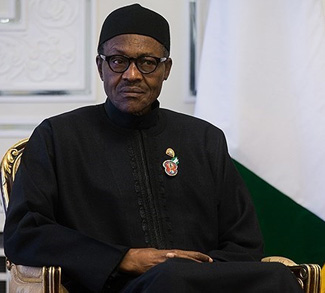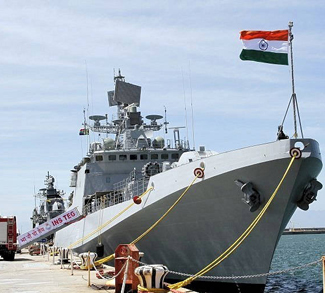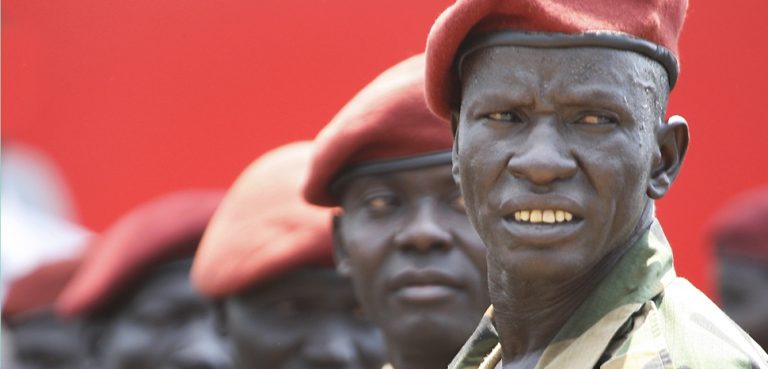Last November marked 42 years since 350,000 Moroccans crossed into the Western Sahara as part of the staged manipulation called “Green March.” November 6 is a dark day for the Saharawi people, because it epitomises Morocco’s illegal military invasion and partial occupation of Western Sahara.
In October 1975, the International Court of Justice totally rejected Morocco’s claim of sovereignty over Western Sahara, and having failed to win the legal argument, Moroccan King Hassan II responded with force. He ordered the Green March, a manufactured “civilian invasion,” which was reinforced with a deployment of 20,000 heavily armed Moroccan troops.
Franco’s legacy is still alive
With Francisco Franco on his deathbed, the Spanish colonial forces that had controlled the territory since 1884 did nothing to resist the annexation. In fact, that time Spanish dictatorship struck a deal to cede control of the territory to Morocco and Mauritania. The “Madrid Accords” between Spain, Morocco, and Mauritania deliberately excluded any representatives of the indigenous Saharawi people of Western Sahara – in the best fashion of neo-colonialism. Mauritania later relinquished its claim in a move applauded by all the progressive word. However, Morocco has continued the legacy of Dictator Franco and its occupation has remained in defiance of international law and the world community ever since.
The Saharawi people refused to stand idly by and watch while their land was stolen. For fifteen years, the Frente POLISARIO resisted the invasion and fought a war with Morocco. In 1991 the Organization of African Unity (the precursor to the African Union) and UN – backed by the NAM/G-77 – jointly brokered a ceasefire between the Frente POLISARIO, the legitimate political representatives of the Saharawi people, and Morocco with the agreement that the Saharawi people would be allowed to exercise their right to self-determination through a referendum. The Western Sahara nation is still waiting – its people divided between a brutal and oppressive Moroccan occupation in the west and the harsh desert refugee camps of southwest Algeria.
Western Sahara is divided by 2,700 kilometres of sand “berm” that is littered with landmines and manned by tens of thousands of Moroccan troops. The landmines, in direct contravention of the Ottawa Treaty on anti-personnel mines, pose daily risks and dangers to the lives of the Saharawi population and their livestock in the liberated area of the territory. Those under occupation are denied basic human rights and freedoms; they are discriminated against and are frequently subject to arbitrary arrest, intimidation, detainment, and torture. These areas are by many independent accounts some of the worst on planet Earth. Those living in the refugee camps are exiled from their homeland, with new generations born under the refugee tents. The precariousness of this situation was highlighted recently when severe flooding destroyed the camps and created a major humanitarian disaster.
Morocco: the neocolonial master-blaster
For decades, the legitimate representatives of the Saharawi people have followed a peaceful path towards liberation, patiently making their case to the world that they too deserve to exercise their fundamental right to self-determination, an elementary liberty granted to most nations of the world. Saharawi do this knowing that they have the full weight of international law on their side and that no single country in the world recognizes Morocco’s claim of sovereignty over Western Sahara.
Some of the strongest support for the Saharawi right to self-determination comes from the African continent and the Non-Aligned Movement, where many countries have fought their own battles for freedom in recent history. Western Sahara is the last colony in Africa, classified by the UN as a Non-Self-Governing Territory, that is still awaiting a process of decolonization.
The AU (African Union) has been clear in its support, stating that “Western Sahara remains an issue in the completion of the decolonization process of Africa that must be resolved.” Many countries in Africa and around the world formally recognize the Saharawi Arab Democratic Republic, which is a full and founding member of the African Union. Morocco, on the other hand, is the only country in Africa that is not a member of the African Union due to its illegal occupation of Western Sahara. And still, the UN Security Council has chosen to ignore the calls of Africans, its African Union, as well as the NAM to rid the continent of colonialism, oppression, flagrant brutality, and economic plunder.
For over 25 years the UN Security Council has had the responsibility to facilitate a referendum on self-determination in accordance with the mandate of the UN peacekeeping mission in Western Sahara, tellingly called the United Nations Mission on the Referendum in Western Sahara (MINURSO). But France and few other P-5 (permanent members) of the Security Council have failed to live up to this obligation by acquiescing to, or in some cases assisting with, Moroccan obstruction of the negotiating process. In the context of this stalemate, it is incumbent upon the UN Secretary-General to point the finger at Morocco and acknowledge that it is the reason why the UN’s efforts to resolve the conflict have ground to a halt. As a first step the UN Secretary-General must follow through on his promise to visit Western Sahara. This would at least send a signal to the Saharawi people that the UN is serious about resolving the conflict.
A new “Green March” every year in March
Unfortunately, what we are witnessing this mid-March is again a bogus Dakhla Forum. This new form of “Green March” brings stashes of naïve officials and manipulated spectators – all free of charge. This ‘summit’ in the center of a concentration camp has no deliberations, directional agenda, or substantive brainstorming. It is rather a showoff, a pathetic one. This lavish pampering of (mostly purely informed and misused) visitors in Potemkin Village of brutally enslaved and tortured Dakhla has only one aim – to desperately try to legitimize this unjust occupation. Regrettably, some of the delegates are either European National (MP) or EU parliamentarians (MEP) who are taking per diems (rather incorrectly) from their taxpayers – besides being fully covered by Morocco with a business class travel and first class accommodation for themselves and for their spouses. Finally, nobody in the EU approved MPs or MEPs to participate in dubious political whitewashing events contrary to their constituencies’ official line – even charging their taxpayers for the non-existing costs.
It is hypocritical for the major Western powers, particularly some on the UN Security Council, to claim that they are the bastions of democracy and human rights while failing to stand up to Morocco when it denies the Saharawi people the basic right of self-determination. All Saharawi ask for is what they are owed under international law: the right to decide their own future.
Too often the world has ignored the situation in Western Sahara because the ceasefire has held and Western Sahara has not returned to war. But the status quo is not sustainable. An increasingly restless generation of Saharawi youth will not accept that it is their fate to live and die without ever knowing freedom from occupation. The international community should take heed and live up to its responsibilities before it is too late.
The opinions, beliefs, and viewpoints expressed by the authors are theirs alone and don’t reflect any official position of Geopoliticalmonitor.com.




